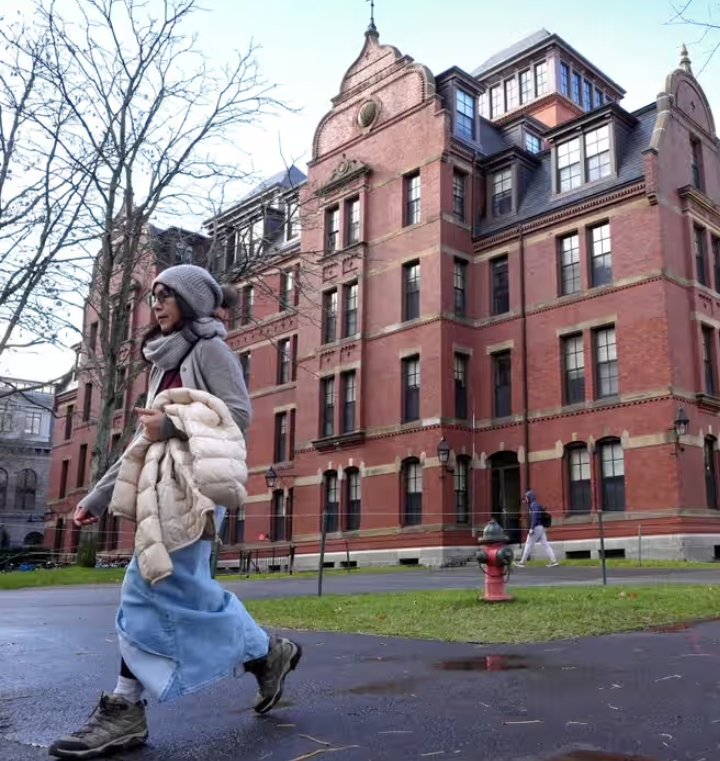A U.S. judge has blocked the Trump administration from enforcing a ban on foreign students at Harvard, citing concerns over retaliation and constitutional violations. The ruling follows escalating tensions over funding, student visas, and accusations of antisemitism and foreign influence.
Judge Blocks Trump’s Ban on Foreign Students at Harvard


A federal judge on Monday halted the Trump administration’s plan to prohibit foreign nationals from entering the United States to study at Harvard University.
U.S. District Judge Allison Burroughs, sitting in Boston, issued a preliminary injunction that stops the administration from enforcing its latest attempt to restrict Harvard’s ability to host international students. The decision comes amid an intensifying legal and political standoff between the Republican president and the prestigious Ivy League institution.
This injunction builds on a temporary restraining order Judge Burroughs issued on June 5, which had already blocked the administration from implementing a proclamation signed by Trump the day prior. That proclamation, citing national security concerns, claimed Harvard could no longer be trusted to host international students.
Under the proclamation, foreign nationals were barred from entering the U.S. to study at Harvard or to take part in exchange visitor programs for an initial six-month period. It also tasked Senator Marco Rubio with reviewing whether the visas of international students already studying at Harvard should be revoked.
Nearly 6,800 international students attended Harvard during its most recent academic year, comprising approximately 27% of the student body at the university’s Cambridge, Massachusetts campus.
The proclamation followed a series of aggressive moves by the Trump administration against Harvard, including the freezing of billions of dollars in funding, threats to revoke the university’s tax-exempt status, and the launch of multiple investigations targeting the institution.
Speaking on Friday, Trump indicated that his administration could soon reach a settlement with Harvard, saying a deal might be announced “over the next week or so” to resolve the White House’s broader campaign against the university. Harvard, however, has pushed back with legal action, arguing that the administration is retaliating against the school for exercising its First Amendment rights by resisting attempts to influence its governance, academic direction, and the ideological outlook of its faculty and students.
In response, the university has filed two lawsuits with Judge Burroughs: one to recover approximately $2.5 billion in frozen funding and another to block the administration from obstructing the enrollment of international students. The second lawsuit was filed after Homeland Security Secretary Kristi Noem announced on May 22 that her department was immediately revoking Harvard’s certification under the Student and Exchange Visitor Program — a key designation that allows it to host foreign students.
Noem alleged, without providing supporting evidence, that Harvard was “fostering violence, antisemitism, and coordinating with the Chinese Communist Party.” Judge Burroughs quickly blocked her action, at least temporarily. Although the Department of Homeland Security has since shifted to pursuing a lengthier administrative challenge to Harvard’s certification, Burroughs stated during a May 29 hearing that she intended to preserve the status quo by issuing an injunction — which she formally did on Friday.
A week after that hearing, Trump signed the proclamation, citing Harvard’s acceptance of foreign funding — including from China — and what the administration described as the university’s inadequate response to requests for information about its international students. The administration also accused Harvard of failing to maintain a safe environment for Jewish students and of allowing antisemitism to spread on campus.
Harvard, along with other U.S. universities, has experienced protests over Israel’s conduct in its war in Gaza — a situation that has stirred unrest across multiple campuses nationwide.
Human rights advocates have pointed to an increase in both antisemitism and Islamophobia in the U.S. as a result of the conflict. So far, the Trump administration has not taken any action to address the surge in anti-Arab and anti-Muslim hate.
In April, Harvard’s own task forces on antisemitism and Islamophobia released reports detailing a campus climate marked by fear, hostility, and widespread bigotry.

 বাংলা
বাংলা  Spanish
Spanish  Arabic
Arabic  French
French  Chinese
Chinese 
